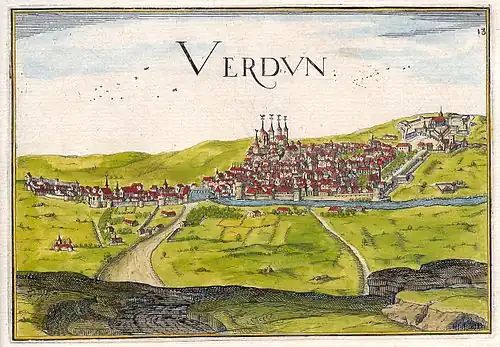< Korean < Words
Korean/Words/a2z
| |
a2z
|
||
|
|
 Swiss traffic light for pedestrian Go! |
See also
|
||
|
|
 A layer cake from which a slice has been removed. |
|
|
.jpg) Nain assis (Seated Dwarf, 19th century), a painting in the style of Spanish artist Francisco Goya |
|
|
 Newborn rests as caregiver checks breath sounds. |
|
| |
|
|
Nuns aka. sisters [5] |
|
||
|
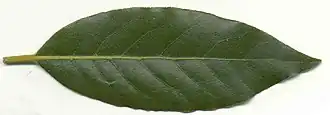 A leaf | |
See also: |
|
|
See also:
|
|
 덕 (德, deok, "virtue")  득 (得, deuk, "virtue") [7] |
|
||
See also: |
|
|
See also:
|
|
|
See also
|
|
Dunes |
|
|
 Lorelei |
|
|
_-_Google_Art_Project.jpg) The Tower of Babel [21] The Tower of Babel narrative in Genesis 11:1–9 is an origin myth meant to explain why the world's peoples speak different languages. [22] Nevertheless, God confused no language; people have made so many! |
See also: |
|
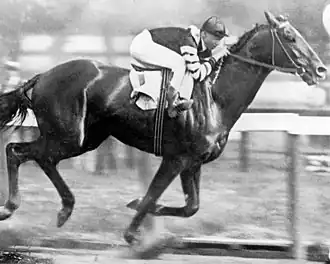 Man o' War (1917-1947) [24] at the age of three 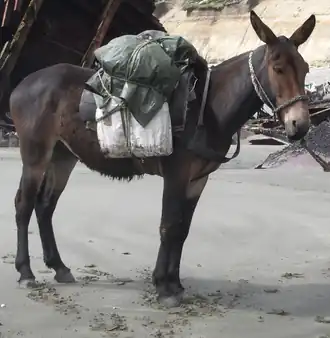 a mule |
|
|
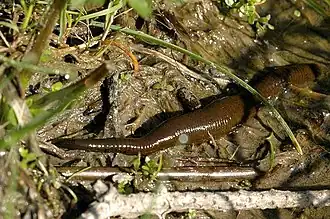 A horse leech |
|
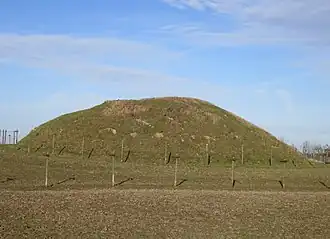 A huge tumulus in Malmö | |
|
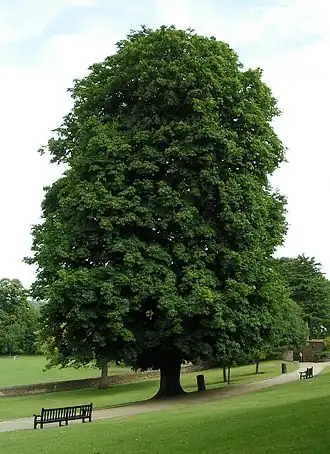 A horse chestnut tree 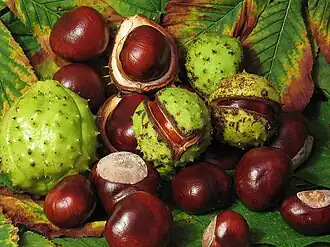 Horse chestnut fruits 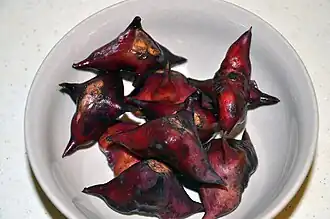 Water caltrop, aka. water chestnut (Trapa natans cf. Trapa japonica) fruits | |
|
|
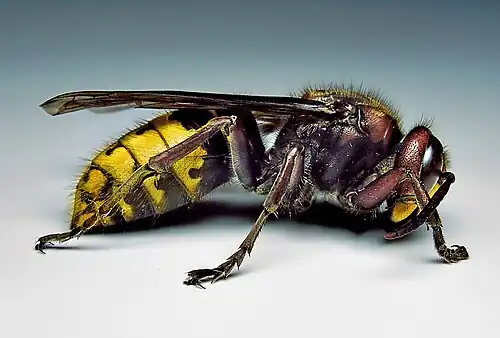 A hornet or namely *horse-bee |
|
||
See also
|
|
 A pond |
See also
|
A motte-and-bailey castle is a European fortification with a wooden or stone keep situated on a raised area of ground called a motte, accompanied by a walled courtyard, or bailey, surrounded by a protective ditch and palisade. |
A reconstruction of York Castle in the 14th century. |
See also
|
|
|
|
||
See also:
|
|
The sea. |
|
||
See also: |
||
See also: |
|
|
|
|
1.jpg) The seeds of the poplar tree are easily dispersed by the wind, thanks to the fine hairs surrounding them. |
|
|
 The belly of a pregnant woman. |
|
|
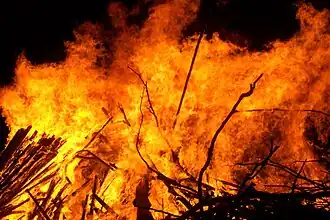 Fire |
|
|
 Korean salon 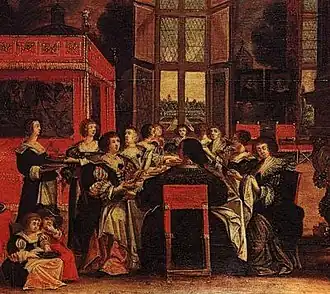 European 17th century salon |
|
||
|
 A woman wearing a shawl | |
|
||
|
||
|
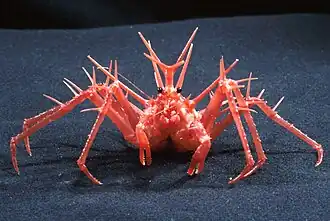 King crab
|
 Red king crab
|
|
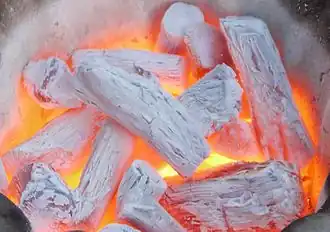 Ablazing charcoal [44] | |
|
|
|
|
|
|
|
||
|
||
See also: |
|
.svg.png) The bellows inhale and exhale as the lungs do. 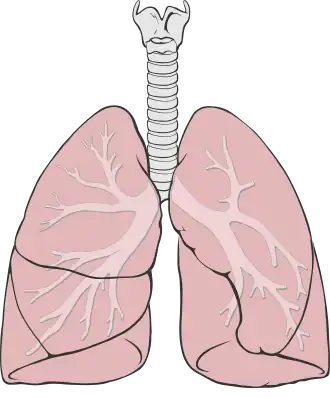 The lungs inhale and exhale as the bellows do. |
See also
|
.jpg) | |
|
|
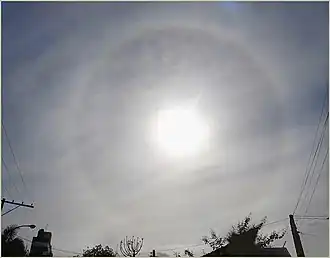 A solar halo like a wheel |
| ( )
|
||
- Footnotes
- ↑ English infinitive prefix "to" replaced the suffixes of Middle English gon and Old English gān, which are equivalent to Dutch "-an", German "-en", and Korean "-다". What a revolution!
- ↑ The infinitive-marker "at" (infinitive-marker, obligatory when the infinitive functions as noun phrase or an adverbial phrase, but omitted when it is governed by a modal verb)
- ↑ "6. A narrow passage of water"
- ↑ You may be very unhappy with this vital idium, which has no Translations.
- ↑ What a coincidence it is that all wear glasses!
- ↑ Borrowed from English dam
- ↑ 덕 (德, deok)과 통용
- ↑
- dike @ Webster's New Collegiate Dictionary
-
- an artufucial watercourse : DITCH
-
- a: (dial Brit) a wall or fence of turf or stone
- b: a bank usu. of earth constructed to control or confine water : LEVEE
- c: a barrier preventing passage esp. of something undirable
-
- a: a raised courseway
- b: a tabular body of igneous rock that has been injected while molten into a fissure
- ↑
- dyke @ Wiktionary
- (historical) A long, narrow hollow dug from the ground to serve as a boundary marker.
- A long, narrow hollow dug from the ground to conduct water.
- (dialect) Any navigable watercourse.
- (dialect) Any watercourse.
- (dialect) Any small body of water.
- (obsolete) Any hollow dug into the ground.
- (now chiefly Australia, slang) A place to urinate and defecate: an outhouse or lavatory.
- An embankment formed by the creation of a ditch.
- (obsolete) A city wall.
- (now chiefly Scotland) A low embankment or stone wall serving as an enclosure and boundary marker.
- (dialect) Any fence or hedge.
- An earthwork raised to prevent inundation of low land by the sea or flooding rivers.
- (figuratively) Any impediment, barrier, or difficulty.
- A beaver's dam.
- (dialect) A jetty; a pier.
- A raised causeway.
- (dialect, mining) A fissure in a rock stratum filled with intrusive rock; a fault.
- (geology) A body of rock (usually igneous) originally filling a fissure but now often rising above the older stratum as it is eroded away.
- ↑
- ditch @ Wiktionary
- A trench; a long, shallow indentation, as for irrigation or drainage.
- (Ireland) A raised bank of earth and the hedgerow on top.
- Translations "trench"
- Icelandic: díki
- Scottish Gaelic: dìg
- Swedish: dike
- ↑
- Ditch @ Wikipedia
- Etymology
Thus Offa's Dyke is a combined structure and Car Dyke is a trench, though it once had raised banks as well. [...]
- ↑ Both are confused.
- ↑ Few cognates
- ↑ "The generally accepted theory of the earthwork attributes most of its construction to Offa, King of Mercia from 757 to 796."
- ↑
- 진 둔
- fort, fortress, hillfort
- 언덕 둔
- hill
- ↑ Etymology reads "The term comes from Irish dún or Scottish Gaelic dùn (meaning "fort"), and is cognate with Old Welsh din (whence Welsh dinas "city" comes)." Then, Whence did English borrowed wikt: dun#Etymology 7 "A mound or small hill" and wikt: dune?
- ↑
- Wikipedia
- w: ca: Dun_(topònim)
- w: de: Dun
- w: es: Dun_(toponimia)
- w: fr: Dun_(toponime)
- w: it: Dun (archeologia)
- w: ko: 둔 (건축물)
- w: nl: Dun_(fort)
- w: no: Dun_(bykkverk)
- w: pt: Dun
- Comments
- Relevant Korean editors seem to acknowledge Sino-Korean 둔(屯, dun), as English dun sounds IPA: /dʌn/.
- All the other (Western) languages may temporarily borrow English dun, which has few or no cognates.
- ↑ The name means "strong fort"
- ↑
- 눈두덩 (nun-) "eyelid"
- 씹두덩 (ssip-) "mons veneris, mons pubis"
- ↑ ... Old English māl (“speech, contract, agreement, lawsuit, terms, bargaining”), from Old Norse mál (“agreement, speech, lawsuit”); related to Old English mæðel (“meeting, council”), mæl (“speech”) ...
- ↑ by Pieter Bruegel the Elder (1563)
- ↑ According to the story, a united human race in the generations following the Great Flood, speaking a single language and migrating eastward, comes to the land of Shinar. There they agree to build a city and a tower tall enough to reach heaven. God, observing their city and tower, confounds their speech so that they can no longer understand each other, and scatters them around the world.
- ↑ Cognates appear in almost all European languages.
- ↑ Man o' War won 20 of 21 races.
- ↑ This should be: ウマビル (umabiru).
- ↑ Uniquely related to "water buffalo" rather than "horse"
- ↑ ... meaning "gravel pile" ...
- ↑ Etymology: Probably a calque of Chinese 馬蜂 (mǎfēng).
- ↑ cf. Pferdeameise ("horse ant"), Pferdebremse ("horse fly"), Pferdeegel ("horse leech"), Pferdefliege ("horse fly").
- ↑
- ↑ This has no European cognate. And Etymology is strange. Therefore, it looks like a borrowing from Korean 못 (mot, "pond").
- ↑
- Etymology
- From Middle English mote, from Old French mote (“mound, embankment”); compare also Old French motte (“hillock, lump, clod, turf”), from Medieval Latin mota (“a mound, hill”), of Germanic origin, ...
- ↑ Not attested
- ↑ Not attested
- ↑ w: Motte-and-bailey castle
- ↑
- ↑
- 물이 밀려들어 오는 것을 막기 위하여 쌓은 둑. (dyke)
- 파거나, 둑으로 둘러막은 못. (pond)
- English: dam
- Danish: dam
- Norwegian: dam
- Swedish: damm
- German: Deich, Teich
- Estonian: tiik
- Latvian: dīķis
- ↑
- Etymology
- Old English belg, bælg, bæliġ (“bag, pouch, bulge”), [...] Cognate with Dutch balg, German Balg, Danish bælg. Doublet of bellows, blague, bulge and budge. See also bellows.
- ↑ cf. #텽집 (廳집 tyeong-jip)
- ↑ Some readers may miss w: is: Kóngakrabbi.
- ↑ Some readers may prefer the common nomenclature w: nl: Koningskrab to this sophistication.
- ↑ "This article uses bare URLs, which are uninformative and vulnerable to link rot. Please consider converting them to full citations to ensure the article remains verifiable and maintains a consistent citation style. Several templates and tools are available to assist in formatting, such as Reflinks (documentation), reFill (documentation) and Citation bot (documentation). (August 2022)"
- ↑ https://en.wiktionary.org/wiki/잉걸
- blaze, flare, glare, ingle (as of charcoal, etc.)
- ↑ Namely, Binchōtan
- ↑ Corruption of 지룡(地龍), lit. "earth dragon"
- ↑ Old English wyrm "worm; snake; dragon" hence "earth dragon"
- ↑ cf. 우룡(雨龍), lit. "rain dragon"
- ↑ 雨龍・螭龍 (あまりょう)
- 精選版 日本国語大辞典の解説
- 中国における想像上の動物。雨を起こすといわれる。龍の一種で、とかげに似ているが、大形で、角がなく、尾は細く、全身青黄色という。うりょう。あまりゅう。みずち。
- ↑ 3. (informal or archaic) The lungs.
- ↑ The idea of "bellows" is related to "belly" in Germanic and more properly to "lung" in Latin.
- ↑ bellows#Etymology 1
- See also belly
This article is issued from Wikiversity. The text is licensed under Creative Commons - Attribution - Sharealike. Additional terms may apply for the media files.




